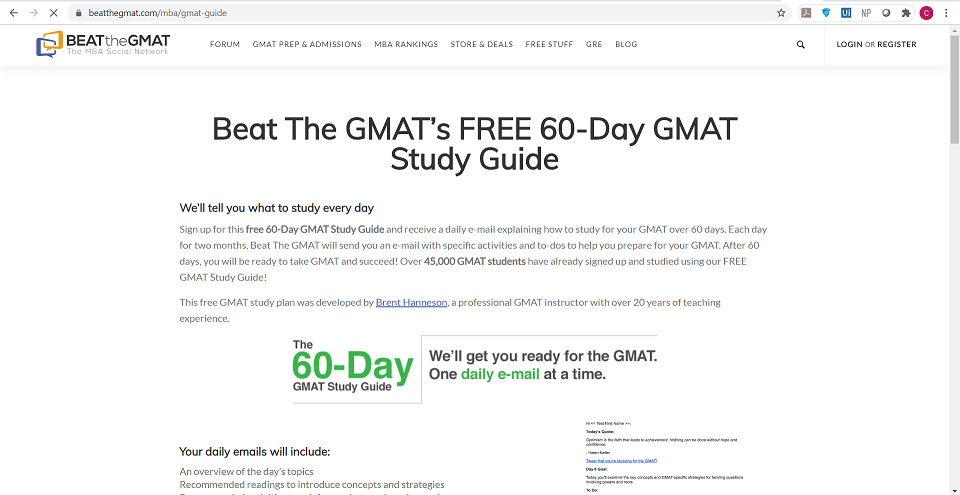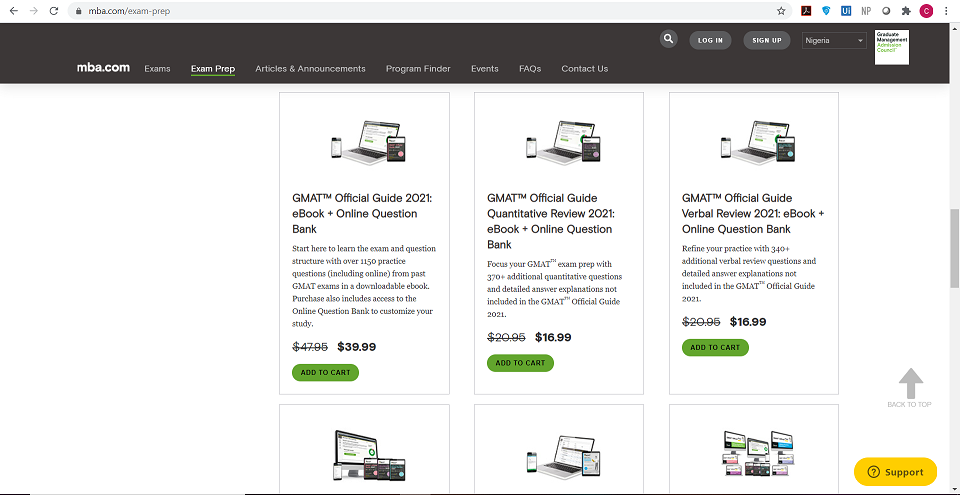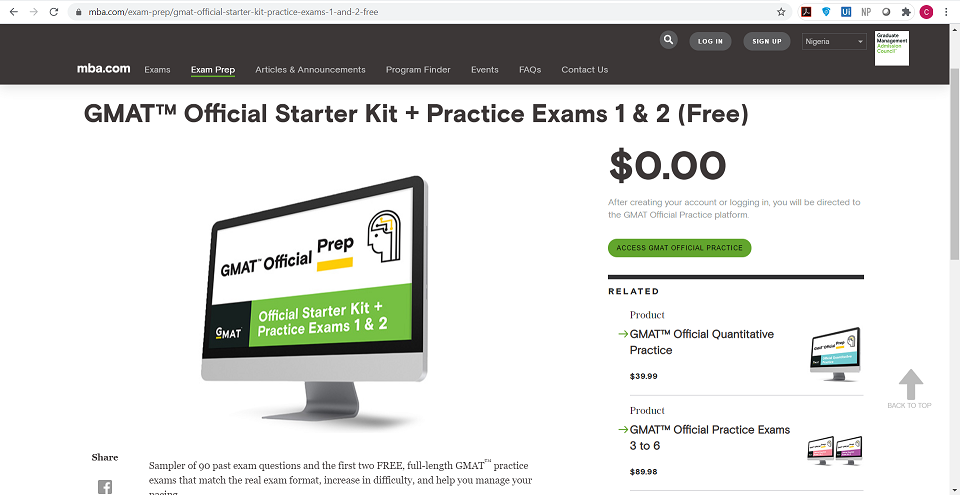While you probably cannot help your undergraduate GPA anymore (unless you are still in college/university as you read this), you can definitely influence what you score on your required tests. Most schools use your GMAT/GRE score to approximate your analytical aptitude, so you want to put your best foot forward here. I took the GMAT, and have never taken the GRE, so the resources I will mention here will relate primarily to the GMAT. However, the tips can just as easily be applied by those taking the GRE.
As a general guide, aim for at least 700+ on the GMAT, and do not be too far behind the mean/median score of your target schools (most schools have this displayed on the class profile section of their website). For most top schools, this typically falls around 730 for the GMAT and 325 for the GRE (give or take a few points). I scored 730 on my first and only attempt at the GMAT and the following tips helped:
1. Give yourself plenty of time
Ensure you give yourself enough time to write the test before your application deadline. I would also advise you add on another month or 2 to account for the possibility of rewriting the GMAT/GRE if you do not get a good enough score the first time around.
2. Plan your study with a timetable
Create a study timetable for yourself and pace your study/practice. When I wrote mine I used Beat The GMAT’s Free 60-Day GMAT Study Guide. They sent me emails explaining what to study each day for 60 days, until “test day”. If you are not sure how to go about developing your study timetable by yourself, give it a shot.

3. Use reliable materials
Try to use materials that are as close to the official practice materials as possible. I used GMAC (the makers of GMAT)’s “Official Guide” series – The GMAT Official Guide, The GMAT Official Guide Verbal Review and The GMAT Official Guide Quantitative Review. They contained actual questions from past GMAT exams and so were very useful in helping me get used to the format of the exam.

4. Take practice tests
It is helpful to take a diagnostic practice test at the beginning to know your baseline score and the areas where you need to focus more effort while studying. You get free access to some of GMAC’s official practice tests once you register. Take as many practice tests as you can before taking the test and try to ensure you are scoring above your target score before heading in for the real test.

5. Watch the time
The official practice tests are timed, but if you are using one that does not have an in-built timer, make sure you time yourself. The real exam is timed and your score will be negatively impacted if you do not finish your questions. Do not spend too long on any question. Practice pacing yourself and know when it is time to take an educated guess and move on.
6. Get used to the test conditions
Simulate real test conditions as much as you can while practicing. Use a computer, do not use a calculator, keep away all distractions and try not to pause once you begin.
7. Brush up on your mental math skills
Practice mental math skills that can help you perform quick computations and evaluate answers to save time. They can be the difference between completing the test and running out of time.
8. Try flashcards
Flashcards can also be helpful for quickly learning mathematical and verbal concepts. You can create some yourself or download/purchase ready-made versions.
Understanding and working around your strengths and weaknesses is key for success in any academic endeavor. Get to know your preferred study methods and use that to your advantage. Stick to a consistent study schedule and use only trusted materials.
If you have questions, drop a comment below or shoot me an email at hello@chiamakaokoye.com and I will try my best to provide guidance or point you to appropriate resources.

